Growing Veggies from Seeds in the Classroom (2nd grade)
kalonkakon
10 years ago
Related Stories
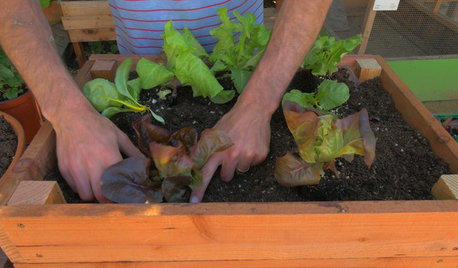
HOUZZ TVHouzz TV: How to Make and Plant a Veggie Box
See how to start edibles from seed, then transfer the seedlings to a box on stilts to make harvesting more fun
Full Story
EDIBLE GARDENSHow to Grow Your Own Sweet Summer Crops
This guide will help any gardener get started on growing the freshest warm-season veggies and berries for summer
Full Story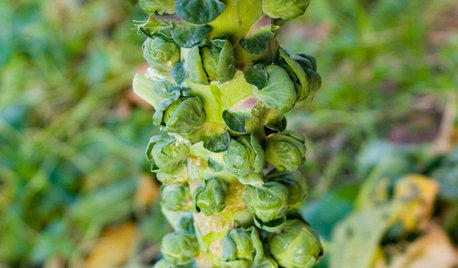
COOL-SEASON CROPSCool-Season Vegetables: How to Grow Brussels Sprouts
If you love 'em (you know who you are), fall and spring are the right times for planting these veggies in your edible garden
Full Story0
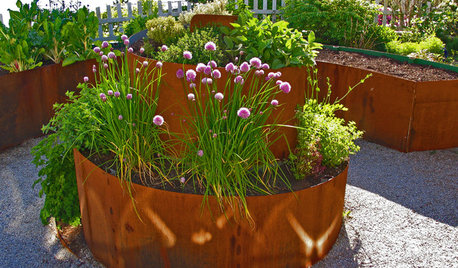
URBAN GARDENSContainers Make Growing Edibles a Cinch
If life hands you a lack of land, grow lemons — with a few basics, you can proudly reap the fruits, veggies and herbs of your labor
Full Story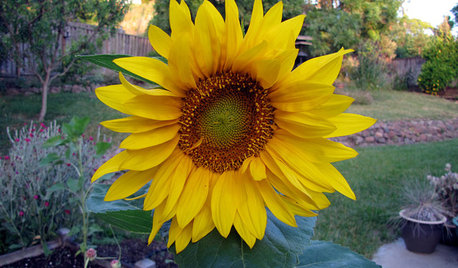
MOST POPULARSummer Crops: How to Grow Sunflowers
Savor snack-tastic sunflower seeds once the radiant blooms have faded — if the birds have saved you any, that is
Full Story
EARTH DAYGrow a Beautiful Garden With Ecofriendly Greywater
Reducing home water waste means lower bills and a healthier planet. Here's how to set up a greywater home irrigation system that can help
Full Story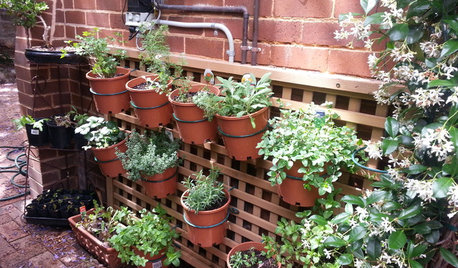
FARM YOUR YARD14 Crazy Places to Grow Edibles
Some Houzzers may lack ground for gardening, but they’re never short on imagination
Full Story
EDIBLE GARDENSSummer Crops: How to Grow Tomatoes
Plant tomato seedlings in spring for one of the best tastes of summer, fresh from your backyard
Full Story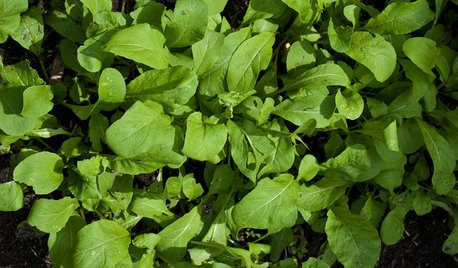
COOL-SEASON CROPSCool-Season Vegetables: How to Grow Salad Greens
From arugula to radicchio, greens have taken a top spot on the table and in fall and winter gardens. See how to start growing them now
Full Story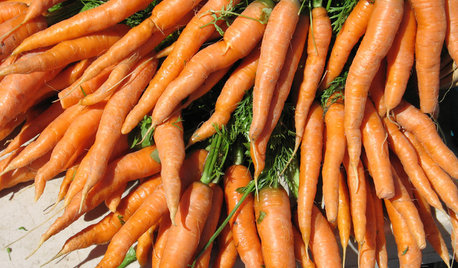
COOL-SEASON CROPSCool-Season Vegetables: How to Grow Carrots
More than just a bunny food, easy-to-grow carrots add lacy good looks to a fall or spring garden
Full Story






theforgottenone1013 (SE MI zone 5b/6a)
AiliDeSpain
Related Professionals
Rancho Palos Verdes Landscape Architects & Landscape Designers · Garden City Landscape Architects & Landscape Designers · Anderson Landscape Contractors · Conroe Landscape Contractors · Deerfield Landscape Contractors · Downey Landscape Contractors · Overland Park Landscape Contractors · Saint Paul Landscape Contractors · Salem Landscape Contractors · Seven Hills Landscape Contractors · Teaneck Landscape Contractors · Waipahu Landscape Contractors · Wickliffe Landscape Contractors · Fort Worth Driveway Installation & Maintenance · Riverside Driveway Installation & Maintenancenancyjane_gardener
elisa_z5
florauk
theforgottenone1013 (SE MI zone 5b/6a)
florauk
zzackey
naturegirl_2007 5B SW Michigan